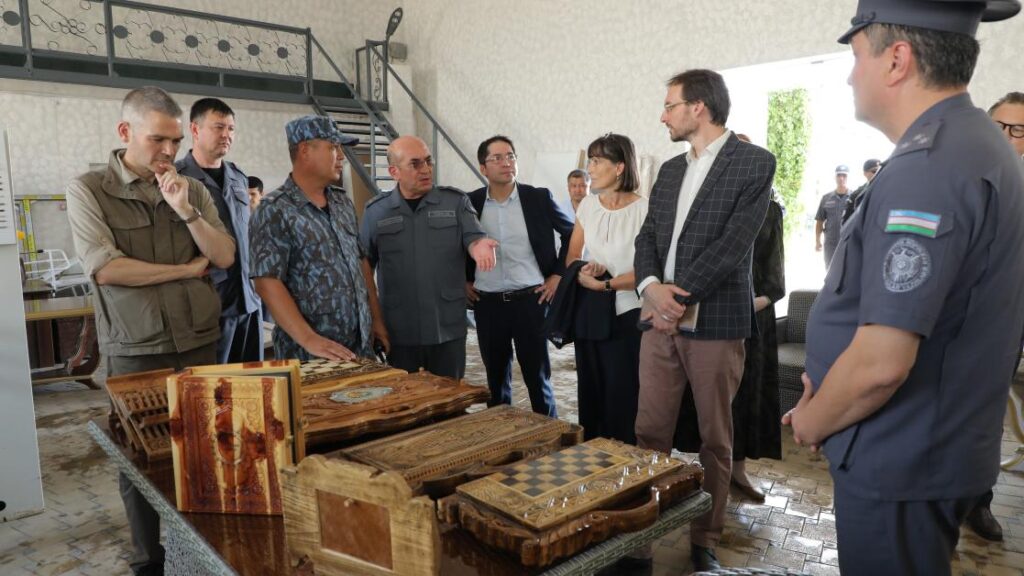Uzbek Prison Visit by EU, US, and UK Diplomats
At the invitation of Uzbek authorities, UK Ambassador Timothy Smart, EU Ambassador Charlotte Adriaen and US Deputy Chief of Mission Paul Poletes visited a prison colony in the Chirchik district close to Tashkent, on 20 June. As reported by the Delegation of the European Union to Uzbekistan, the visit included a tour of facilities for medical care and therapy, as well as two workshops where prisoners produce garments and furniture. Presentations by staff, provided an insight into the daily lives of prisoners serving their sentences. The visit marks a milestone in engagement between Uzbekistan and the European Union, the United Kingdom, and the United States, and the diplomats acknowledged both the openness of the prison staff and improvements made in recent years. Uzbekistan has announced its intention to ratify the Optional Protocol to the Convention against Torture (OPCAT) under which the National Preventative Mechanism will conduct comprehensive and independent reports on detention facilities to support the Uzbek government in forwarding reforms to improve the justice sector. Charlotte Adriaen thanked both the Uzbek government and the administration of prison #13 for enabling the visit and said: “Transparency in the penitentiary system is key to Uzbekistan’s path towards the ratification of OPCAT. In this regard, and considering the positive impression provided by today’s visit, it is my firm belief that openness and cooperation with international and national monitors can only benefit the life of prisoners and Uzbekistan.” Enthused by the visit, Timothy Smart added: “It is encouraging to see Uzbekistan continue its journey towards improving human rights in the country. In the UK we have had many issues with our prisons and through open discussion and independent scrutiny, have been able to improve conditions. I am most grateful to the Uzbek government and authorities of prison #13 for such access. I was struck by both the quality of the facilities we saw today and the focus on rehabilitation. The life skills provided are invaluable to both the individuals as well as their mahallas”.

